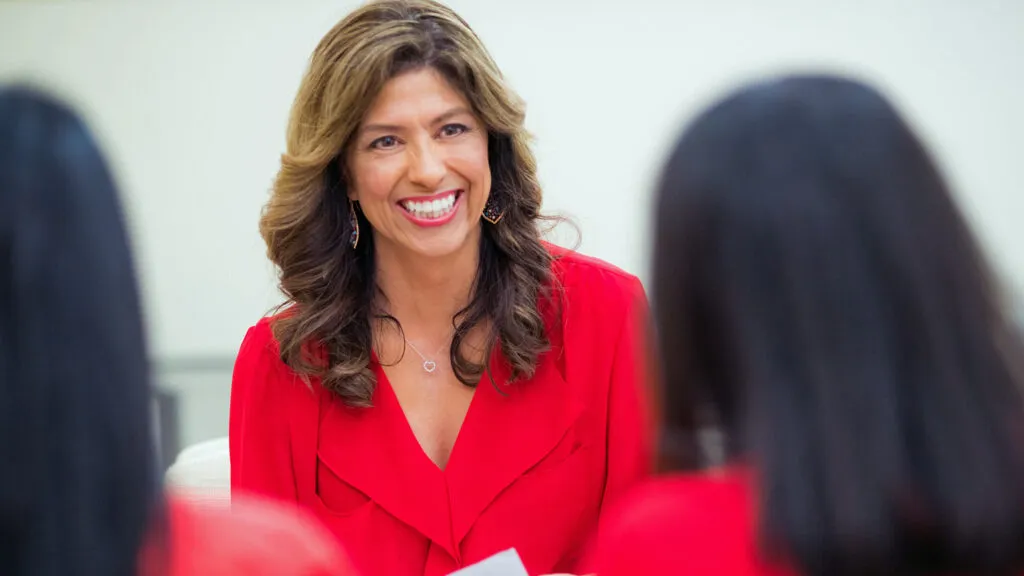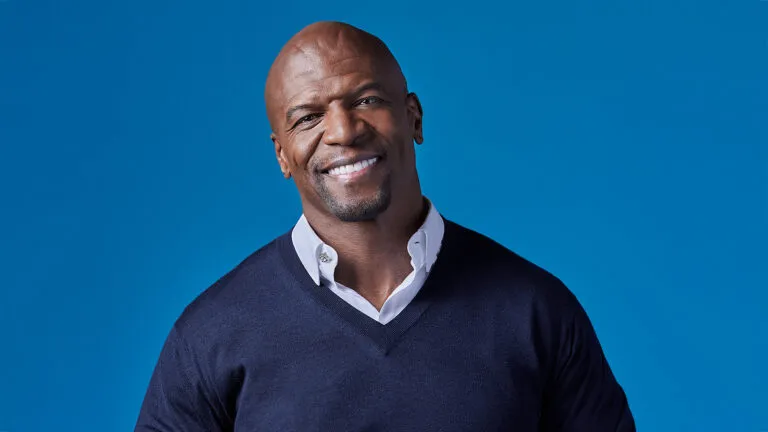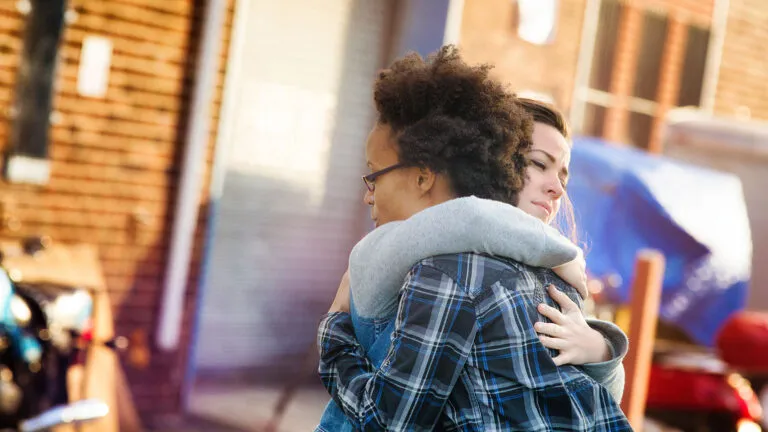At 53 years old, Bertha B. Verde never thought she’d be the victim of a heart attack.
Verde was in great shape – she had just finished an intensive fitness boot camp – and was committed to clean eating. In fact, it was while enjoying a snack of fresh veggies at home in her kitchen that Verde noticed something was off. She began to have trouble swallowing, she started sweating and clenching her teeth, she had a sudden jaw pain and her arm began to go numb.
“At the time, you don’t think, ‘Oh, what’s the list of symptoms of a heart attack?’” Verde tells Guideposts.org. While Verde was ready to ignore the pain, her husband wasn’t. The couple rushed to the E.R. where Verde was admitted and had to undergo an EKG and blood tests.
She would find out later that she had a suffered something known as the “widowmaker,” a spontaneous coronary artery dissection, where a tear forms in the blood vessel and blocks blood flow.
Verde may not have known it at the time, but her symptoms were classic signs of trouble when it comes to women’s heart disease.
“Men and women’s symptoms are very different when it comes to heart disease,” Dr. Poulina Uddin, a cardiologist at Scripp’s Women’s Heart Center in La Jolla, California says. “They can have the classic chest pain but more often they’ll complain about jaw or back pain, nausea, excessive fatigue, sometimes lightheadedness. Those could be symptoms of anything which is why they’re often missed.”
According to Dr. Uddin, women are also more likely to shrug off their discomfort, like Verde did.
“Women are used to having pain from various things, their period, childbirth, so they may disregard it and blow it off as something else.”
For Verde, accepting that her body had gone through such a trauma was difficult. It’s been 18 months since her heart attack and she finds herself still struggling through the recovery process.
“The immediate was denial. I knew it happened but I couldn’t believe it happened,” Verde said of the few months following her heart attack. She couldn’t exercise for long periods – just a 30 minute walk left her winded – and found herself filling up her downtime by scrolling on the internet, searching survivor support forums for answers as to why she was feeling so low and hope for when she might return to normal.
“Depression is really common after having a heart attack and people don’t talk about that,” Dr. Uddin admits. “People are usually in shock for a good six months after something like this happens and they don’t even process it until a year later but we want to give them the tools to say ‘Hey, you’re not alone and here are other things you can do to inform others and educate others.’”
It wasn’t until Verde started attending a women’s support group at Scripp’s Women’s Heart Center that she began to feel understood and started to take charge of her recovery.
“As a person who has suffered a heart attack, I just wanted to talk to other people [like me],” Verde says. She began attending a group at Scripps that was a 45 minute drive from her house but soon felt lead to start a support program in her own neighborhood.
She attended a four day training program at the Mayo Clinic in Rochester Minnesota where she was instructed by cardiologists and medical professionals about the different types of heart disease, how to recognize symptoms, how to support survivors and how to run a support group.
A few weeks ago, Verde held her group’s first kick off meeting.
A handful of ladies signed up on line. Over a dozen ladies came in.
“They were so happy that there was somewhere to come and listen and talk to others in the neighborhood,” Verde says of the meeting. “I had no idea that I could help in this way. You could hear women talking to each other, connecting with each other and feel relief and feel understood. You can talk to other people, but unless they’ve been through it, it’s kind of hard for other people to truly understand what’s happened to you.”
She hopes to offer more to the women in her community, educating them on the signs of heart disease and encouraging them to be proactive about their health.
“I want everyone to know the symptoms, to know the risks, to get checked,” Verde says. “I want women to know how to empower themselves and to know what questions to ask.”





